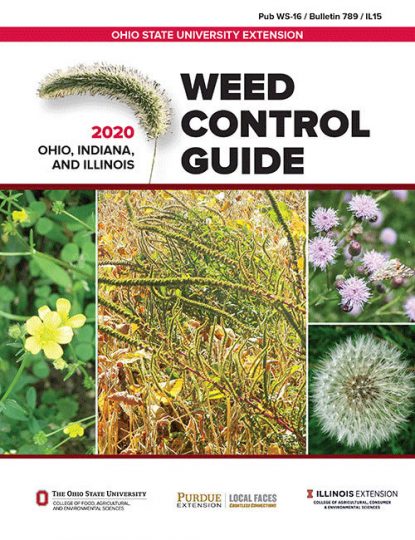2020 Weed Control Guide Now Available
The 2020 Weed Control Guide for Ohio, Indiana and Illinois contains 223 pages of weed management information, including weed response ratings for corn and soybean herbicides. Information and recommendations for managing weeds in small grains and forages is included, along with specific information about and control recommendations for several problem weed species. Printed and pdf versions of the 2020 weed control guide are available at: https://extensionpubs.osu.edu/2020-weed-control-guide-for-ohio-indiana-and-illinois/
 …
…





